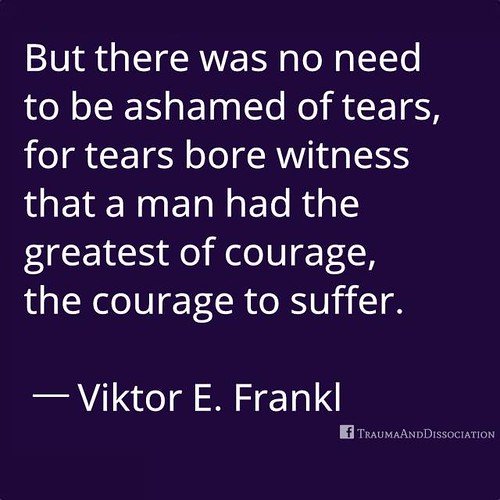
Click below to listen to this article:
Viktor Frankl
Viktor Frankl (1905-1997) was an Austrian psychiatrist and neurologist who survived the horrors of the Holocaust and founded logotherapy, a form of existential analysis that focuses on the human quest for meaning. Frankl was born in Vienna and studied medicine at the University of Vienna, where he became interested in psychotherapy and the works of Sigmund Freud and Alfred Adler. He developed his own approach, which he called logotherapy, based on the idea that “man’s main concern is not to gain pleasure or to avoid pain but rather to see a meaning in his life” (Frankl, 1959, p. 115).
Frankl’s life and work were profoundly influenced by his experiences in Nazi concentration camps, where he witnessed the suffering and death of millions of people, including his parents, brother, and wife. He wrote about his ordeal and his insights in his best-selling book Man’s Search for meaning (1946), which has been translated into more than 20 languages and sold over 10 million copies worldwide. In this book, he argued that “everything can be taken from a man but one thing: the last of the human freedoms—to choose one’s attitude in any given set of circumstances, to choose one’s own way” (Frankl, 1946, p. 66). Frankl’s logotherapy has been applied to various fields of psychology, medicine, education, and counselling, and has inspired many people to find meaning and purpose in their lives.
Influences
Frankl’s main influences were Sigmund Freud, the founder of psychoanalysis, and Alfred Adler, the founder of individual psychology. Frankl was also influenced by existential philosophers such as Martin Heidegger, Jean-Paul Sartre, and Friedrich Nietzsche. Frankl’s logotherapy is based on the premise that “man’s primary motivational force is his search for meaning” (Frankl, 1984, p. 121). He argued that people can discover meaning in three different ways: by creating a work or doing a deed; by experiencing something or encountering someone; or by the attitude they take toward unavoidable suffering. Frankl believed that meaning is not given, but must be found by each individual in his or her unique situation. He also emphasized the importance of freedom, responsibility, and dignity in human existence. Some of his famous quotes are:
“Everything can be taken from a man but one thing: the last of the human freedoms—to choose one’s attitude in any given set of circumstances, to choose one’s own way” (Frankl, 1984, p. 86).
“What is to give light must endure burning” (Frankl, 1984, p. 115).
“Those who have a ‘why’ to live, can bear with almost any ‘how'” (Frankl, 1984, p. 104).
Core concepts
One of the core concepts and theories of Viktor Frankl is logotherapy, which is a form of psychotherapy that focuses on the meaning of human existence and the search for it (Frankl, 1984). Frankl developed logotherapy based on his experiences as a Holocaust survivor, where he observed that those who had a sense of purpose and hope were more resilient and less likely to succumb to despair and death (Frankl, 2006).
logotherapy consists of three main principles: freedom of will, will to meaning, and meaning of life (Batthyany, 2019). Freedom of will asserts that humans are free to choose their attitude and actions in any situation, even in the face of suffering and adversity. Will to meaning posits that humans have an innate drive to find meaning and significance in their lives, and that this is the primary motivation for living. The meaning of life implies that life has an objective and inherent meaning that can be discovered and fulfilled by each individual (Frankl, 1984). Frankl also introduced the concept of noogenic neurosis, which is a form of existential distress caused by the lack of meaning or the frustration of the will to meaning (Frankl, 1984). To overcome this condition, Frankl proposed three ways to find meaning in life: by creating a work or doing a deed, by experiencing something or encountering someone, and by taking a courageous attitude toward unavoidable suffering (Frankl, 2006). As Frankl famously stated, “He who has a why to live for can bear almost any how” (Frankl, 2006, p. 76).
Frankl proposed three main concepts that constitute his theory: freedom of will, will to meaning, and meaning of life (Batthyany, 2019).
Freedom of will asserts that humans are free to choose their attitude and actions in any situation, regardless of the external or internal constraints they may face. Frankl (2006) wrote: “Everything can be taken from a man but one thing: the last of the human freedoms—to choose one’s attitude in any given set of circumstances, to choose one’s own way.”
Will to meaning refers to the innate drive of humans to discover and fulfil their unique purpose in life. Frankl (2006) argued that meaning can be found in three different ways: by creating a work or doing a deed; by experiencing something or encountering someone; and by the attitude we take toward unavoidable suffering.
The meaning of life is the result of finding and actualizing one’s personal meaning, which can vary from person to person and from moment to moment. Frankl (2006) stated: “For the meaning of life differs from man to man, from day to day and from hour to hour. What matters, therefore, is not the meaning of life in general but rather the specific meaning of a person’s life at a given moment.”
Frankl’s concepts and theories have influenced the modern world in various ways. They have been adopted by many fields and disciplines, such as positive psychology, existential therapy, coaching, counselling, education, leadership, management, spirituality, and health care (Batthyany & Guttmann, 2005). They have also provided benefits for individuals and groups who face challenges such as trauma, depression, anxiety, addiction, chronic illness, terminal disease, bereavement, and social injustice (Batthyany & Guttmann, 2005). Frankl’s logotherapy offers a hopeful and humanistic perspective that empowers people to find meaning in their lives and overcome their difficulties with dignity and courage.
Man’s search for meaning
The concepts and theories contained in Viktor Frankl’s Man’s Search for meaning have influenced the modern world in various ways, especially in the fields of psychology, philosophy, and education. Frankl’s book, which chronicles his experiences as a prisoner in Nazi concentration camps during World War II, introduces his psychotherapeutic method of logotherapy, which is based on the premise that human beings have a primary motivation to find meaning in life (Frankl, 2006). According to Frankl, meaning can be found through three different modes: by creating a work or doing a deed, by experiencing something or encountering someone, and by taking a courageous attitude towards unavoidable suffering (Frankl, 2006).
These modes of meaning have been adopted by many people who face challenges, crises, or hardships in their lives, as they provide a way to cope with adversity and to transcend it with dignity and purpose. Some benefits derived from Frankl’s concepts and theories include: enhancing one’s resilience, optimism, and hope; developing one’s authentic self and values; fostering one’s creativity and self-expression; strengthening one’s relationships and social support; and contributing to one’s personal growth and wellbeing (Wong, 2010).
One of the most powerful quotes from Frankl’s book that illustrates his main point is: “Everything can be taken from a man but one thing: the last of the human freedoms—to choose one’s attitude in any given set of circumstances, to choose one’s own way” (Frankl, 2006, p. 66). This quote shows that Frankl believed that human beings have the freedom and responsibility to shape their own destiny by choosing how to respond to their situation, even in the most extreme conditions.
Another quote that demonstrates his view on meaning is: “What matters, therefore, is not the meaning of life in general but rather the specific meaning of a person’s life at a given moment” (Frankl, 2006, p. 110). This quote implies that meaning is not a fixed or universal concept, but rather a dynamic and personal one that depends on the context and the individual. Frankl also emphasized that meaning is not something that can be given or imposed by others, but rather something that has to be discovered and created by oneself.
References
Batthyany, A. (2019). logotherapy: Viktor Frankl’s theory of meaning. PositivePsychology.com. Retrieved from https://positivepsychology.com/viktor-frankl-logotherapy/
Batthyany, A., & Guttmann, D. (Eds.). (2005). Empirical research in logotherapy and meaning-oriented psychotherapy: An annotated bibliography. Phoenix: Zeig Tucker & Theisen.
Britannica. (2023). Viktor Frankl | Biography, Books, Theory, & Facts | Britannica. Retrieved from https://www.britannica.com/biography/Viktor-Frankl
Frankl, V. E. (1946). Man’s search for meaning: An introduction to logotherapy. Boston: Beacon Press.
Frankl, V. E. (1959). The will to meaning: Foundations and applications of logotherapy. New York: New American Library.
Viktor Frankl. In Wikipedia, The Free Encyclopedia. Retrieved 23:04, December 10, 2021, from https://en.wikipedia.org/w/index.php?title=Viktor_Frankl&oldid=1058571400
Wong, P. T. P. (2010). meaning therapy: An integrative and positive existential psychotherapy. Journal of Contemporary Psychotherapy, 40(2), 85-93.




0 Comments